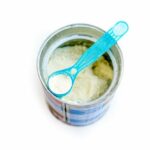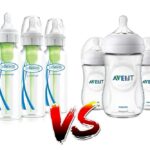Milestones are a huge discussion point when you become a parent. But we are thinking of the big ones like walking, talking, crawling, and if you are a lucky parent sleeping through the night.
But sometimes it is the little things that often get overlooked such as, the first time your baby holds their own bottle. You suddenly realize how much you have missed having that extra pair of hands around albeit very little ones!
You may be thinking that you love those quiet moments feeding your baby and just basking in their absolute amazingness. But alas reality hits you like a truck and you remember you have laundry to do, groceries to put away, and bills to pay.
So you may also be wondering when will your baby be able to hold their own bottle? Read on to find out all the details.
In this article
When Do Babies Hold Their Own Bottles?
The average baby won’t have the skills required to hold their own bottle until around six months of age. Some babies reach this stage earlier, while some reach it much later on.
Some little ones need time to develop the skills to do it. Six months is the indicator for this activity as by this age.
Babies have developed the motor skills to move objects from one hand to the other and the achievement of this developmental stage is often used as one of the indicators of healthy development.
The Primitive Palmer Grip
Babies develop this grip by the end of the fifth month, so it is quite likely that they may attempt to grab the bottle and hold it for themselves. However, some babies show no inclination to holding a bottle until almost 10 months or more.
Don’t panic this does not mean that they are behind in their development as long as they are meeting developmental milestones. If they are not then it would be advised to seek some professional opinions.
View in gallery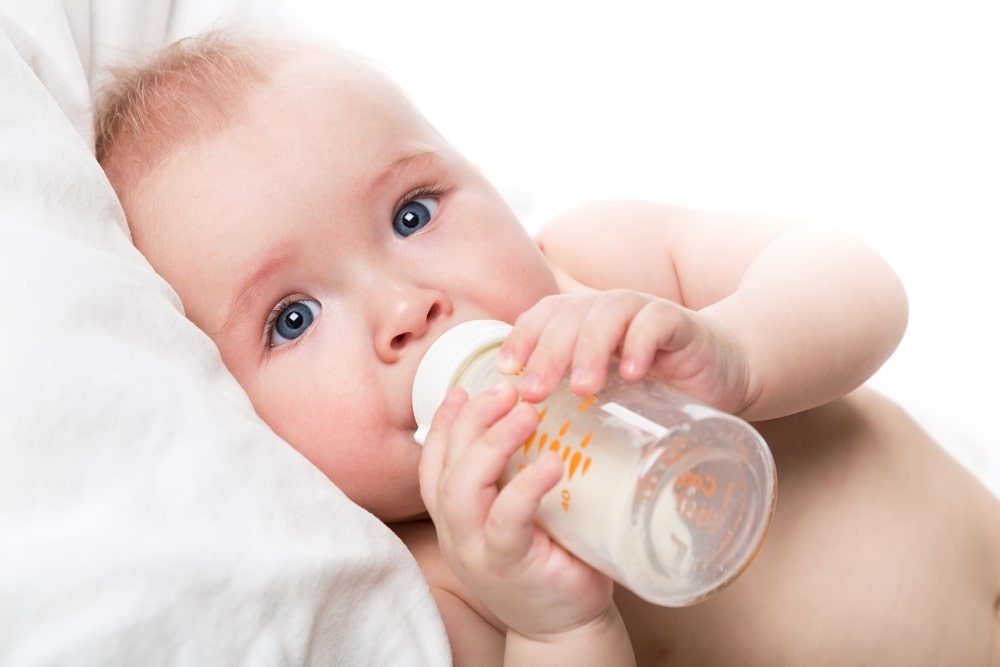
Signs Baby Is Ready To Hold Their Own Bottle
If you are eager for your baby to reach this developmental milestone but are unsure if they are ready, you could watch your baby to see if they give you any clues that they are ready to get involved in their mealtimes. Here are some signs to look out for:
Baby can sit for 10 minutes unaided
Holding a bottle is a fine motor skill as is learning to feed themselves. But in order to achieve this particular fine motor skill, your baby will need to be able to have developed their gross motor skill of being able to sit unaided and stabilize themselves.
Baby can grab a toy and gnaw on it while sitting
This shows that they can multitask and this is another skill they will require in order to hold a bottle while drinking from it.
They reach for the bottle when you feed them
This shows that they have some interest and have cognitive development. It also shows that your baby is now associating the bottle with food.
How To Encourage Your Baby To Hold A Bottle
By now you may have noticed that your baby does what they want when they want to. But there are ways that you can gently encourage them to get involved with their own feeding.
Hand to mouth motion
You can demonstrate this motion by taking baby-safe items like teethers from the floor to the baby’s mouth.
Easy grasp bottles
You could purchase bottles or sippy cups with handles.
Placing their hands
By gently placing their hands on the bottle and then placing your on top and guiding the bottle to their mouth.
Building strength
Spend lots of time helping your baby to build their strength through things like tummy time.
View in gallery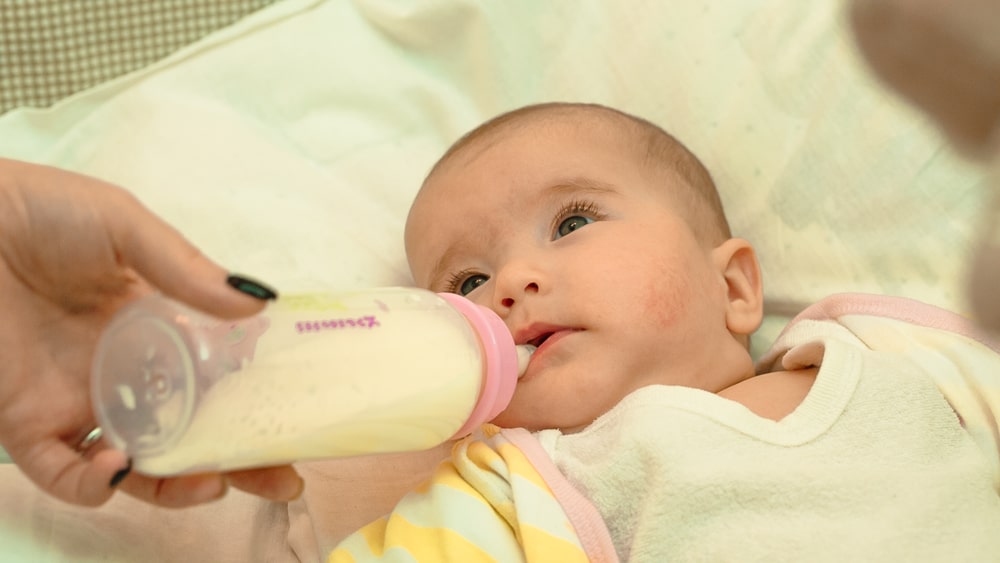
Why You Should Avoid Bottle Propping
You may be tempted to have your baby to sit in the corner of the couch and prop their bottle up with cushions and let them sip away. This is something that should be avoided at all costs.
If you have to prop up your baby and their bottle then they’re clearly not ready to be involved in their self-feeding. It is also extremely difficult as the baby could roll or fall.
This type of bottle propping can also contribute to overeating and possibly choking. Babies are unable to control how much milk they take in when the milk is free-flowing.
There could potentially be a risk for ear infections and also tooth decay if the baby falls asleep with their bottle still in their mouth.
Another important thing is that no matter whether babies can feed themselves or not it is a lovely time to bond with them when you hold them during feeds and it gives your baby a sense of warmth and security.
Does Baby Have To Hold Their Own Bottle
The short answer is no. But when babies do hold their own bottle they demonstrate important skills such as crossing the midline which is when a baby reaches from one side of their body to the other with a foot or hand.
But not all babies accomplish this skill through holding a bottle especially those that are breastfed. but this is fine as there are other ways in which they can show this type of development.
For example, a breastfed baby may go straight from breastfeeding to drinking from a cup on their own at around 1 year old – this is showing the same skill.
This also does not mean that they didn’t have the skill earlier. The other tasks that involve crossing the midline are using the dominant hand to pick up a toy on the non-dominant side of the body or bringing a toy up to their mouth.
View in gallery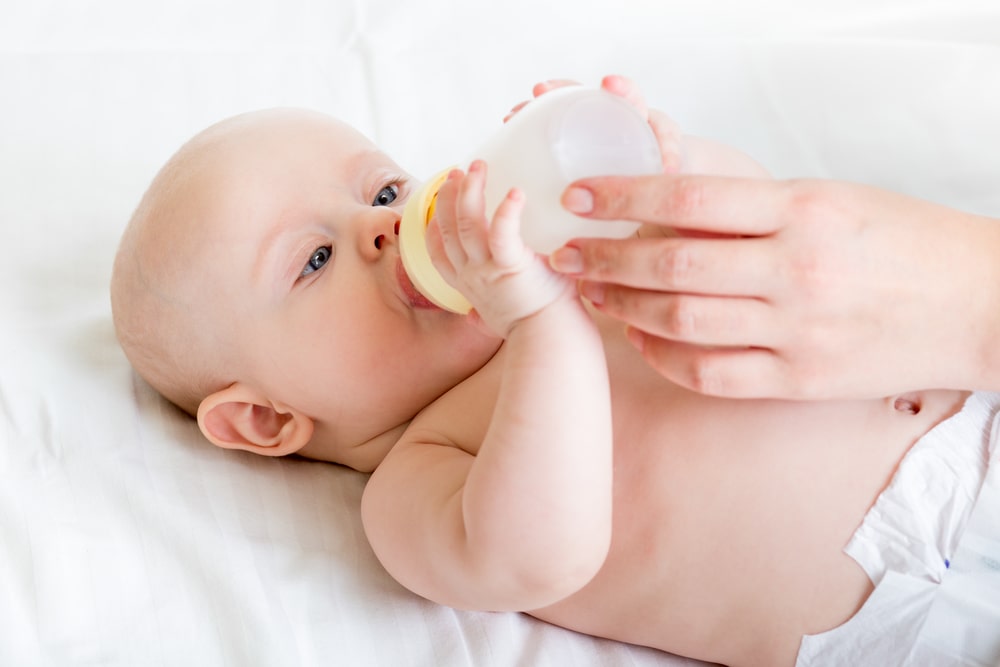
FAQs
Can a 3-month-old baby hold a bottle?
At around 3 months of age, babies begin to notice when you put things in their hands like a rattle, toy, bottle, or breast.
By 4-6 months, this is when babies begin to transfer objects from one hand to the other. This is also a very important developmental milestone for their fine motor skills.
Why won’t my baby hold his own bottle?
If Your baby is uninterested in holding their own bottle, then they may just not be ready for self-feeding. If your baby picks up the bottle and brings it to their mouth, then they might be ready to try self-feeding.
The Final Thought
Your little one is becoming an independent eater! And even though you are going to likely be feeding them most of the time, just for the bonding, cuddles, and of course the safety.
It is always handy to know that they can manage to hold their own bottle for a few seconds if you need them to.
Independent eating is also a great skill that is far more important than simply being able to hold their own bottle. If your baby is demonstrating this skill between 6 and 10 months of age, don’t be afraid to hand over their bottle to them once in a while.



